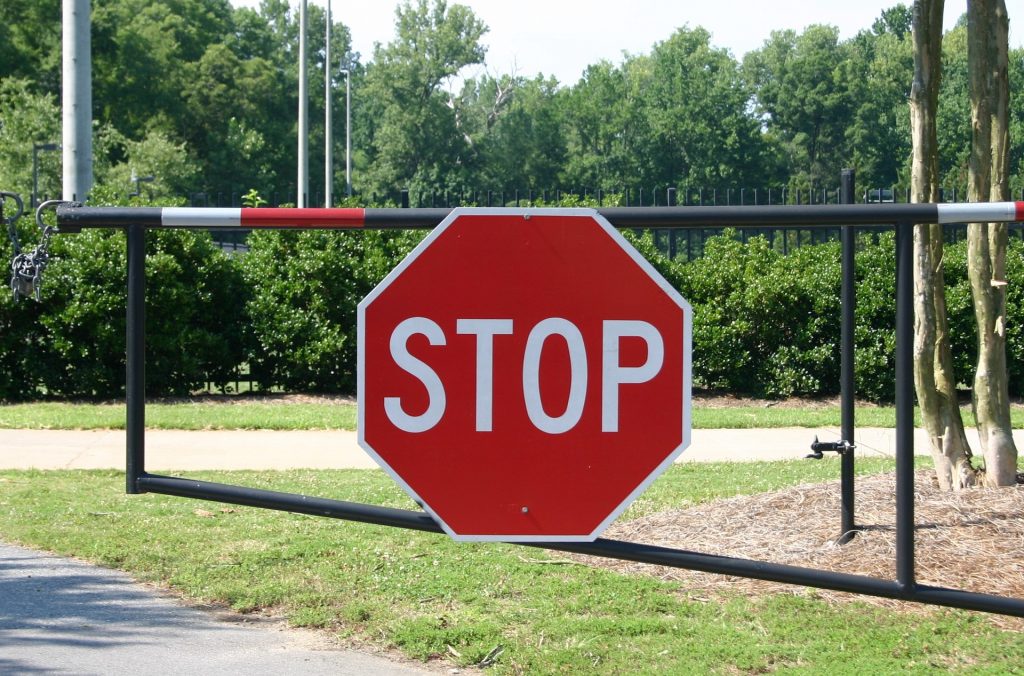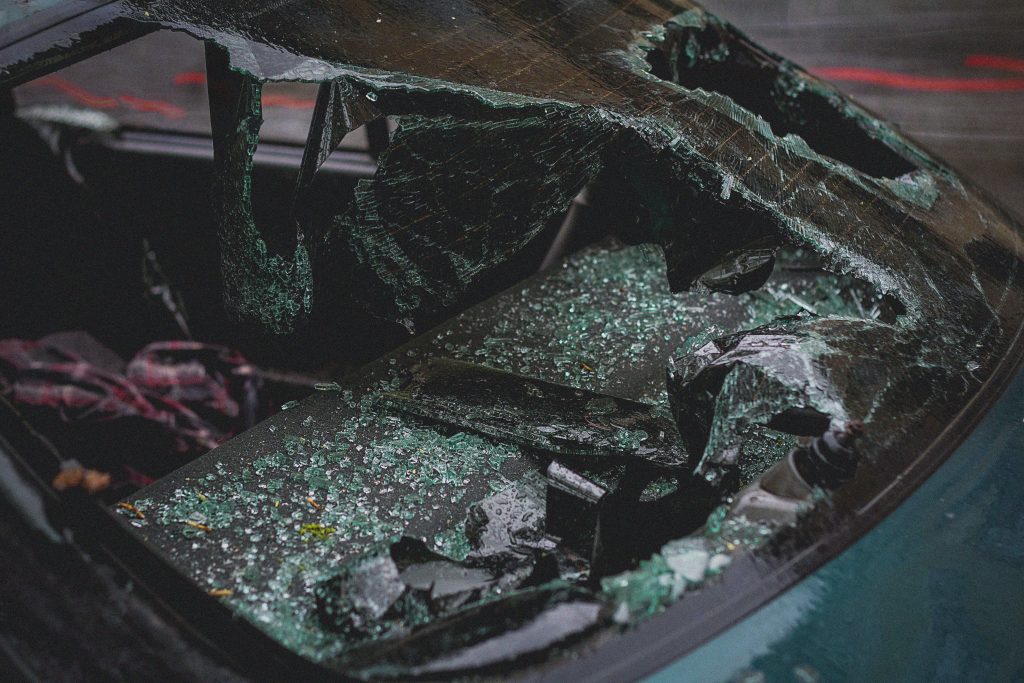 What would it take for an appellate court to overturn an award of damages? According to the Louisiana 3rd Circuit Court of Appeal, the bar is set high and very rarely does an award for damages get overturned as long as it’s reasonable. Lafayette Motors employed Mr. Menard as a service advisor. In August 2003, Dr. Stroy came to Lafayette Motors to obtain a copy of the repair estimate for his wife’s car. While Menard made a copy of the estimate, the shop manager instructed Menard not to give the estimate to Dr. Stroy. Menard crumpled up the estimate to place it in the trash; however his right wrist was grabbed and twisted by Dr. Stroy. Dr. Story proceeded to take the estimate and leave the premises with it. Menard had injuries to his wrist and arm and was later diagnosed with tendinitis by an orthopedic surgeon. Almost ten years later, Menard testified he still had pain in his wrist.
What would it take for an appellate court to overturn an award of damages? According to the Louisiana 3rd Circuit Court of Appeal, the bar is set high and very rarely does an award for damages get overturned as long as it’s reasonable. Lafayette Motors employed Mr. Menard as a service advisor. In August 2003, Dr. Stroy came to Lafayette Motors to obtain a copy of the repair estimate for his wife’s car. While Menard made a copy of the estimate, the shop manager instructed Menard not to give the estimate to Dr. Stroy. Menard crumpled up the estimate to place it in the trash; however his right wrist was grabbed and twisted by Dr. Stroy. Dr. Story proceeded to take the estimate and leave the premises with it. Menard had injuries to his wrist and arm and was later diagnosed with tendinitis by an orthopedic surgeon. Almost ten years later, Menard testified he still had pain in his wrist.
A year after the incident occurred, Menard filed a petition for damages. His petition alleged that Dr. Stroy’s actions were the proximate cause of his injuries, and he wanted damages for the medical bills he incurred at the time of the incident. Dr. Story filed an answer to the petition, as well as petitioning for reconventional demand alleging Menard made public statements that were slanderous and defamatory. He further alleged that these statements caused him to suffer embarrassment, humiliation, and mental anguish. Menard filed a motion to strike or dismiss the reconventional demand, and the court granted the motion. Menard then added Dr. Stroy’s insurance company as a defendant, and they responded by saying that the police did not provide coverage for that particular incident. The insurance company filed a motion for summary judgment, and the trial court denied it. A bench trial was held, and the court ruled in favor of Menard and awarded him $3,000 in general damages and $3,048 in special damages for the medical expenses from August 2003 to November 2003.
The standard of review, in this case, is really what this case turns on and, in this case, there is broad discretion owed to the trier of fact when it comes to fixing awards for general damages. See Hollenbeck v. Oceaneering Int., Inc., 685 So.2d 163 (La. 1997). Unless the record shows that a factual and reasonable basis does not exist and the finding is wrong or erroneous, an appellate court should not disturb a finding of fact. See Thibodeaux v. Comeaux, 69 So.3d 674, 679 (La. App. Ct. 2011).
 Louisiana Personal Injury Lawyer Blog
Louisiana Personal Injury Lawyer Blog


 Public entities are treated as private entities when it comes to slip and fall situations. They must abide by a liability standard when a customer or employee slip and fall on their premises. The standard gives the public entity responsibility for things that they control. The standard is similar to the standard used in cases of slip and fall. In this case, the court considered whether a slip and fall on a public entity’s premises can lead to liability.
Public entities are treated as private entities when it comes to slip and fall situations. They must abide by a liability standard when a customer or employee slip and fall on their premises. The standard gives the public entity responsibility for things that they control. The standard is similar to the standard used in cases of slip and fall. In this case, the court considered whether a slip and fall on a public entity’s premises can lead to liability.  Although many people are aware that merchants are required to keep their premises reasonably safe, it can be complicated to establish what exactly constitutes unreasonable risk.
Although many people are aware that merchants are required to keep their premises reasonably safe, it can be complicated to establish what exactly constitutes unreasonable risk.  When writing leases, it is important to pre-determine who is at fault if an accident or injury occurs on the rented land. Yet, this determination can become complicated when the border of the leased land comes into play. Other issues can involve the exact lease language which states whether one party is indemnified, or is free from having to pay damages. A case out of western New Orleans shows how damages and fee allocations for a horrific accident involving a loose metal gate depends on which lease governs, what clauses are met, and where fault should be allocated.
When writing leases, it is important to pre-determine who is at fault if an accident or injury occurs on the rented land. Yet, this determination can become complicated when the border of the leased land comes into play. Other issues can involve the exact lease language which states whether one party is indemnified, or is free from having to pay damages. A case out of western New Orleans shows how damages and fee allocations for a horrific accident involving a loose metal gate depends on which lease governs, what clauses are met, and where fault should be allocated. Freak accidents can happen in the most unexpected ways. When these life-altering events occur, it often affects more than the injured person. Depending on the circumstances, family members can receive compensation for non-physical injuries, such as loss of consortium (companionship).
Freak accidents can happen in the most unexpected ways. When these life-altering events occur, it often affects more than the injured person. Depending on the circumstances, family members can receive compensation for non-physical injuries, such as loss of consortium (companionship). Cyclists must follow the rules of the road, not only for their own safety, but also because if an accident occurs the cyclist’s rule breaking could affect recovery. When a car hits a cyclist, the injured party can sue for negligence and recover damages as long as the other party was at fault. Outside of New Orleans, at the intersection of Jefferson Highway and North Causeway Boulevard, one cyclist failed to recover damages because he did not follow cycling rules.
Cyclists must follow the rules of the road, not only for their own safety, but also because if an accident occurs the cyclist’s rule breaking could affect recovery. When a car hits a cyclist, the injured party can sue for negligence and recover damages as long as the other party was at fault. Outside of New Orleans, at the intersection of Jefferson Highway and North Causeway Boulevard, one cyclist failed to recover damages because he did not follow cycling rules. Terms of Sale commonly include an “escape clause,” which gives the buyer a way out of a contract if unplanned circumstances arise. It is often a lawyer’s obligation to ensure that this clause is present in a contract, because if the lawyer fails to include one, this could result in malpractice. However, in order to receive recovery from the malpractice, the aggrieved party must promptly bring a lawsuit. The Longs family of Long’s Preferred Products, Inc. in Alexandria, LA, learned this the hard way when they sued their lawyer in the Ninth Judicial District Court Parish of Rapides for not including an escape clause in a stock purchase.
Terms of Sale commonly include an “escape clause,” which gives the buyer a way out of a contract if unplanned circumstances arise. It is often a lawyer’s obligation to ensure that this clause is present in a contract, because if the lawyer fails to include one, this could result in malpractice. However, in order to receive recovery from the malpractice, the aggrieved party must promptly bring a lawsuit. The Longs family of Long’s Preferred Products, Inc. in Alexandria, LA, learned this the hard way when they sued their lawyer in the Ninth Judicial District Court Parish of Rapides for not including an escape clause in a stock purchase. Insurance plans and policies are often riddled with complicated jargon and loopholes to protect insurance companies from financial loss. These confusing insurance provisions can lead an individual to think he/she is covered in case of an accident, but many times leaves individuals unprotected. In one recent Louisiana lawsuit, a consumer’s expectations of coverage are shattered by the complexity of insurance provisions.
Insurance plans and policies are often riddled with complicated jargon and loopholes to protect insurance companies from financial loss. These confusing insurance provisions can lead an individual to think he/she is covered in case of an accident, but many times leaves individuals unprotected. In one recent Louisiana lawsuit, a consumer’s expectations of coverage are shattered by the complexity of insurance provisions. Timing and deadlines are important aspects of the judicial system. However, these specific guidelines are not familiar to most non-lawyers, which underscores the importance of having an excellent attorney represent you. The lack of an attorney can immediately put an individual at a disadvantage, as it did in one New Orleans woman’s case.
Timing and deadlines are important aspects of the judicial system. However, these specific guidelines are not familiar to most non-lawyers, which underscores the importance of having an excellent attorney represent you. The lack of an attorney can immediately put an individual at a disadvantage, as it did in one New Orleans woman’s case. Car accidents are unpredictable. Typically when you get in your car and drive, you do not think you are going to be involved in a life-changing automobile accident. For one Louisiana woman, a car accident got even more complicated when she was hit in a rental car by another rental car.
Car accidents are unpredictable. Typically when you get in your car and drive, you do not think you are going to be involved in a life-changing automobile accident. For one Louisiana woman, a car accident got even more complicated when she was hit in a rental car by another rental car.